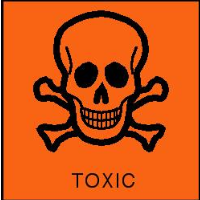Brain Damage in Children May be Caused by Exposure to Industrial Chemicals

A dozen different industrial chemicals may each cause brain damage in children, according to new medical research.
Philippe Grandjean, adjunct professor of environmental health at Harvard School of Public Health, and Philip Landrigan, dean for Global Health at Mount Sinai, say their research shows exposure to many toxic chemicals can create neurodevelopmental disabilities in kids, including autism and attention-deficit hyperactivity disorder.
“The greatest concern is the large numbers of children who are affected by toxic damage to brain development in the absence of a formal diagnosis,” Grandjean said, according to Common Dreams. “They suffer reduced attention span, delayed development and poor school performance. Industrial chemicals are now emerging as likely causes.”
The researchers reported in 2006 that five industrial chemicals—lead, methylmercury, polychlorinated biphenyls, arsenic and toluene—functioned as developmental neurotoxicants.
Their latest study added six more chemicals to the list: manganese, fluoride, chlorpyrifos and DDT (used in pesticides), tetrachloroethylene (a solvent), and polybrominated diphenyl ethers (commonly used as flame retardants).
Manganese exposure can weaken intellectual function and impair motor skills, they wrote, while solvents like tetrachloroethylene can cause hyperactivity and aggressive behavior.
Grandjean and Landrigan also said governments need to be more proactive in protecting people from harmful chemicals.
“The presumption that new chemicals and technologies are safe until proven otherwise is a fundamental problem,” the authors wrote.
“Voluntary controls seem to be of little value,” they added.
They say the U.S. needs to work with foreign governments to devise an international strategy to confront what they called a “global, silent pandemic” brought about by chemicals being allowed on the market before they are proven safe.
“The problem is international in scope, and the solution must therefore also be international,” Grandjean stated. “We have the methods in place to test industrial chemicals for harmful effects on children's brain development—now is the time to make that testing mandatory.”
-Noel Brinkerhoff
To Learn More:
Toxic Chemicals Linked to 'Global, Silent Pandemic' Striking Children Worldwide (by Andrea Germanos, Common Dreams)
Neurobehavioural Effects of Developmental Toxicity (by Dr Philippe Grandjean, MD, and Philip J Landrigan, MD; The Lancet) (abstract)
FDA Bans BPA in Baby Bottles, after Chemical Industry Follows California’s Lead (by Noel Brinkerhoff and Ken Broder, AllGov California)
- Top Stories
- Unusual News
- Where is the Money Going?
- Controversies
- U.S. and the World
- Appointments and Resignations
- Latest News
- Trump Orders ICE and Border Patrol to Kill More Protestors
- Trump Renames National Football League National Trump League
- Trump to Stop Deportations If…
- Trump Denounces World Series
- What If China Invaded the United States?






Comments